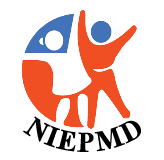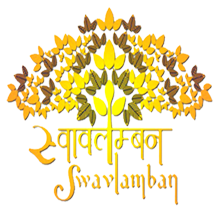About Us
The Ministry of Social Justice & Empowerment, Department of Empowerment of Persons with Disabilities, Govt. of India is working and aiming for the empowerment of persons with disabilities since its commencement. This ministry is serving the disabled through its seven delivery models. These are conducting awareness, sensitization and HRD programs, undertaking research & development, providing assistive devices and livelihood for persons with disabilities (PwD) in the year 1980 which reinforces the idea of serving disabled. The United Nation declared decade for disabilities (1982-1992), which led to the advent of the most of the National Institutions. These Institutes started earlier, were working for the persons with Disabilities of different individual categories (single disabilities). The decade between 1993-2002 was declared as the Asia pacific decade of the disabled persons. Further extended as extension of Asia Pacific decade for the disabled 2003-2013.
This decade led to the emergence & proposal of the PwD (1995) Act and the National Trust (1999) Act in India. After the proposal of National Trust Act (1999), focus was given to Persons with Multiple Disabilities and there arose a need to start a National Institute exclusively for Empowerment of persons with Multiple Disabilities. To achieve the focus given above, National Institute for Empowerment of Persons with Multiple Disabilities (NIEPMD) came in to an existence in the year 2005. The Institute is situated in a beautiful ambience on East coast road (ECR) Muttukadu, Chennai, which is 35 kilometers away from the Chennai Central station. Since the commencement in 2005 the services for Persons with Disabilities for single as well as Multiple disabilities as NIEPMD has been given on an outpatient basis through a multi-disciplinary team model, besides the cottage services and extension services.
The Census 2011, of India enumerated data on eight types of Disabilities, including first time entry of multiple disabilities. This data gave a picture of prevalence of multiple disabilities in the country and guide path to NIEPMD in planning various services of rehabilitation for this group of society, census data, 2011on disability shows that there are 2.68 crore persons are with disabilities in India, which constitute 2.21% of the total population, out of which 21.16 lakhs belong to the category of multiple disabilities. One of the objectives is to ensure all human rights to disabled persons especially to those who need more intensive support i.e. persons with multiple disabilities.
VISION
The persons with Multiple Disabilities have equal rights to lead a better quality of life. This may be enabled with committed professionalism, accessible environment, equal opportunities, positive attitudes and appropriate, affordable, acceptable and available technological interventions.
MISSION
To provide need based comprehensive rehabilitation through team approach facilitating inclusion, ensuring empowerment of persons with Multiple Disabilities and their families and by substantiating field based research and development of human resources.
VALUE STATEMENT
Promoting quality of life for persons with Multiple Disabilities, through equal participation of clients, families, professionals and community agencies.
Core Functions
- Human resource development
- Research and Development
- Documentation & Dissemination of information
- Developing Service delivery models
- Supporting NGOs
Human Resource Development
Long term courses planned
- Graduate and Post Graduate courses in developmental therapy
- B. Ed/ M. Ed (Multiple Disabilities)
- PG Dip. Early Intervention for children with Multiple Disabilities
- Diploma in Special. Education (Multiple Disabilities)
- Diploma in Community Based Rehabilitation
Short term courses planned for
- Medical Doctors and other
- Health personnel
- Mobility Instructors
- Other Rehabilitation professionals and personnel
- Primary School teachers
- ICDS workers
- Panchayat workers
Orientation/sensitization programs for
- Administrators
- Policy makers
- Government organizations
- NGOs








 Screen Reader Access
Screen Reader Access



